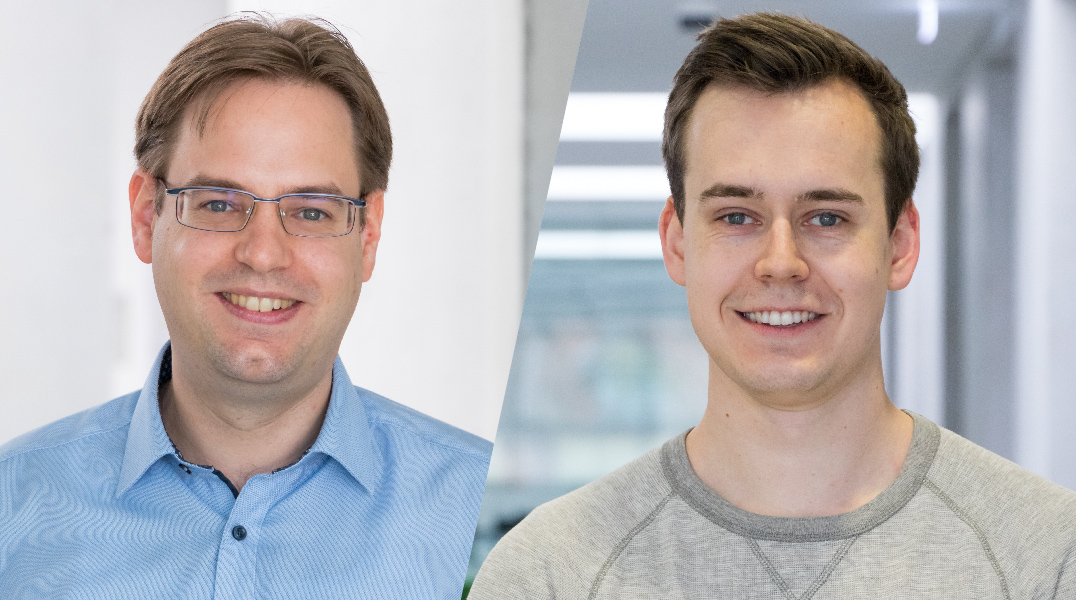News & Press
Scientific Achievements Honored
Philipp Höfele and Robin Weßling receive awards for young researchers from the University of Freiburg

Philipp Höfele and Robin Weßling receive awards for young researchers from the University of Freiburg (from left).
This year the University of Freiburg has awarded 38 prizes totalling 109,000 euros to 55 young scientists. The prizes are awarded for outstanding research work based on recommendations of the respective faculties. One of the winners is livMatS member Dr. Philipp Höfele, who received the "MTZ-Preis für Bioethik" ("MTZ Award for Bioethics"). Robin Weßling, a doctoral researcher in the cluster, has been awarded the "Steinhofer-Preis" ("Steinhofer Prize").
Dr. Philipp Höfele demonstrates in his work "Schopenhauer liest Schelling. Freiheits- und Naturphilosophie im Ausgang der klassischen deutschen Philosophie" ("Schopenhauer reads Schelling. Philosophy of Freedom and Nature at the End of Classical German Philosophy"), that Friedrich Wilhelm Joseph Schelling's and Arthur Schopenhauer's philosophy of freedom and nature not only played a key role in 19th century philosophy. As Höfele points out, it also offers starting points for current debates on natural philosophy and nature ethics. The volume examines the extent to which both authors provide a corrective foil to current discourses on natural philosophy and ethics, for example, around the so-called "Anthropocene". Höfele wrote the work in the context of his research in the livMatS cluster. There, Höfele focuses on the semantics of basic concepts in the natural sciences and philosophy, such as "life", "life-like" or "autonomy". He also wants to show that livMatS can contribute to solutions for ethical problems arising from social developments in the Anthropocene.
Robin Weßling’s work had the goal of synthesizing and characterizing organic polymers used in the development of novel solar batteries. These batteries should be able to collect and store solar energy in a single material. This makes it possible to design compact and mobile end devices. For his doctoral thesis at the livMatS cluster, Weßling is also working on the development of solar batteries.
Press release of the University of Freiburg
